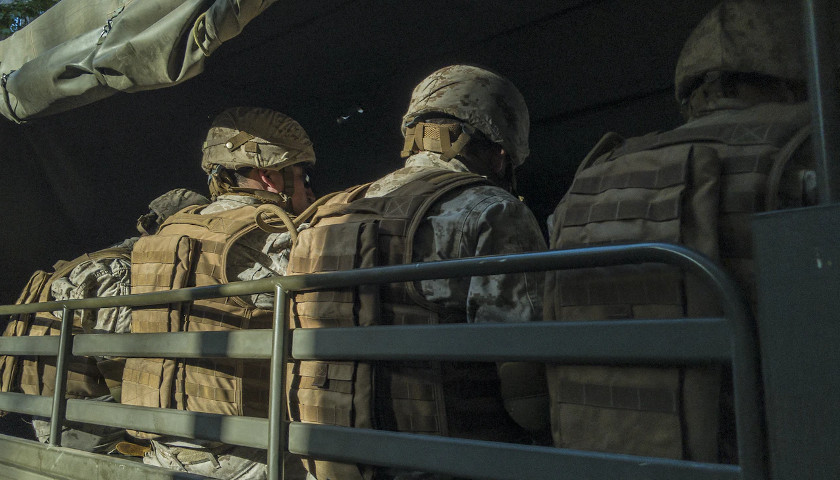by Andrew Trunsky
The House of Representatives Passed a $741 billion defense bill Tuesday evening despite President Donald Trump’s repeated threats to veto the legislation.
The bipartisan bill passed 335-78, receiving more than the two-thirds support necessary to override a presidential veto. The legislation authorizes a 3% pay raise for U.S. troops and requires the renaming of military bases named after Confederate figures.
 Trump’s qualms with the bill, however, have little to do with the anything related to national defense. Instead, Trump has insisted that he would veto the bill if it did not terminate Section 230, which grants social media companies broad immunity from content published on their platforms.
Trump’s qualms with the bill, however, have little to do with the anything related to national defense. Instead, Trump has insisted that he would veto the bill if it did not terminate Section 230, which grants social media companies broad immunity from content published on their platforms.
“I hope House Republicans will vote against the very weak National Defense Authorization Act (NDAA), which I will VETO,” Trump tweeted Tuesday afternoon.
Despite the president’s threat, multiple lawmakers touted the bill’s overwhelming, bipartisan passage.
“Today the House sent a strong, bipartisan message to the American people: Our service members and national security are more important than politics,” said Washington Democratic Rep. Adam Smith, who chairs the House Armed Services Committee.
Our service members and our national security are more important than politics. By passing the #FY21NDAA conference report with a veto-proof majority, the House has proven to be capable of legislating and reaching compromise that results in good policy outcomes.
— Rep. Adam Smith (@RepAdamSmith) December 9, 2020
His comments were echoed by Republican Rep. Paul Mitchell, who said that “Today’s bipartisan vote affirms the importance of the NDAA for our military personnel and national security.”
Today's bipartisan vote affirms the importance of the #NDAA for our military personnel and national security. I call on the Senate to pass this vital legislation as fast as possible and for President Trump to sign it into law for our nation, servicemembers, and their families.
— Paul Mitchell (@RepPaulMitchell) December 8, 2020
If the bill passes with at least 67 votes in the Senate, then Trump could likely face the first veto override of his presidency.
Though some Republicans have said that they will work to override a possible Trump veto, including Oklahoma Sen. Jim Inhofe, the chair of the Senate Armed Services Committee, others have spoken differently.
House Minority Leader Kevin McCarthy said that he would not vote to override a veto, saying that “Section 230 needs to get done,” according to The New York Times.
The bill now heads to the Senate, which is expected to pass it overwhelmingly in the coming days.
– – –
Andrew Trunsky is a reporter for the Daily Caller News Foundation.




